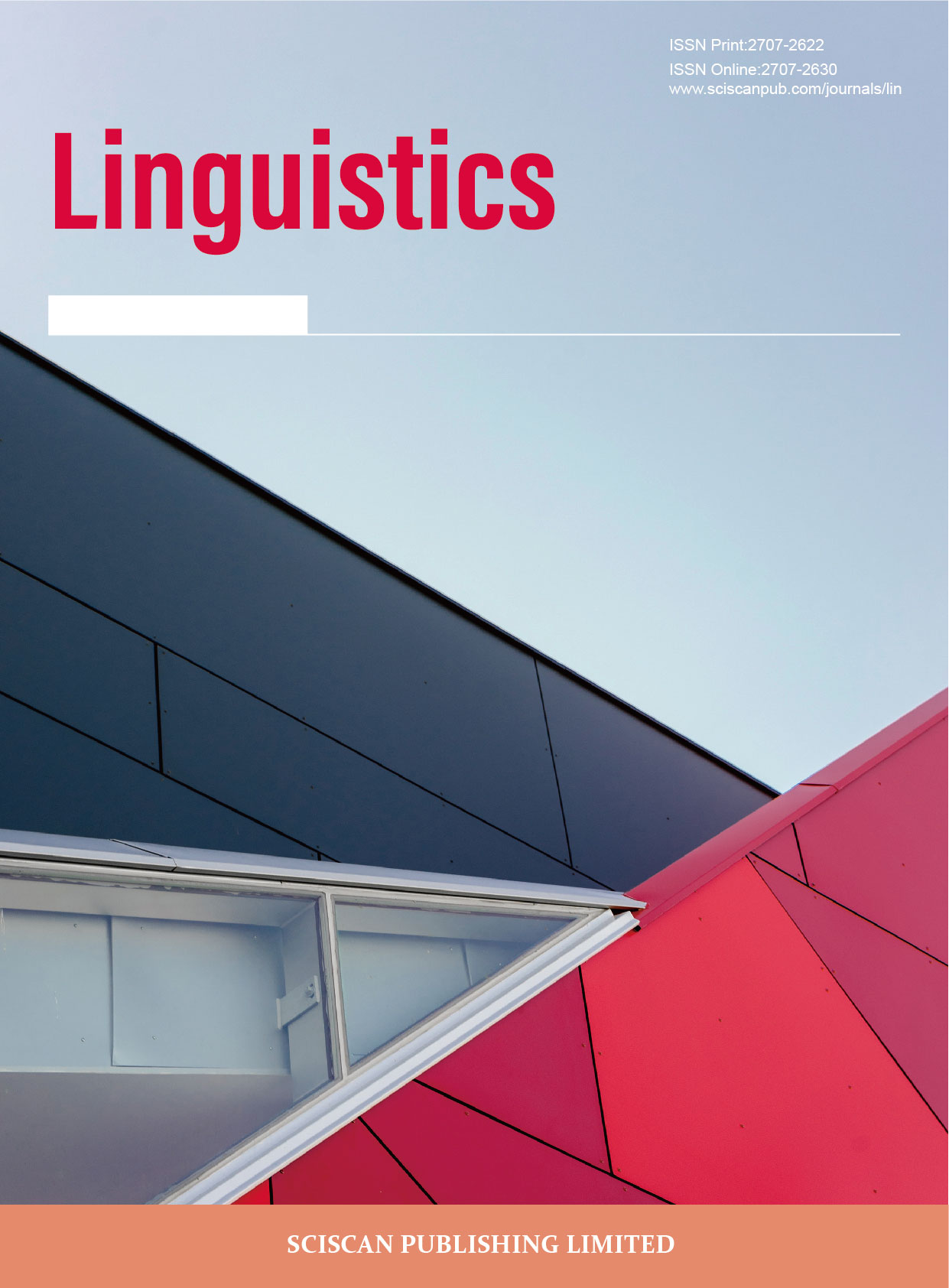生态书写视野下《天火》与《通往雨山的路》比较研究
A Comparative Study on Celestial Fire and The Way to Rainy Mountain from the Perspective of Ecological Writing
- Authors: 李怡文
-
Information:
华东理工大学,上海
-
Keywords:
Alai; Hollow Mountain; Navarre Scott Momaday; The Way to Rainy Mountain; Ecological writing阿来; 《天火》; 纳瓦拉·斯科特·莫马戴; 《通往雨山的路》; 生态书写
- Abstract: The novel Hollow Mountain: Celestial Fire by Tibetan writer Alai and The Way to Rainy Mountain by Native American writer Navarre Scott Momaday are both classics in minority literature. From the perspective of ecological writing, this article employs Lu Shuyuan’s tripartite division theory to examine the natural, social, and spiritual ecological crises in the two works. In terms of natural ecology, the Tibetan people’s view of “the unity of gods and humans”, the Kiowa’s sun worship and natural beliefs are fading. In terms of social ecology, certain positions in Tibetan society are erased, but traditional culture is maintained, while the Kiowa’s oral tradition disappears with the passing of generations and the spread of English. In terms of spiritual ecology, both the Tibetan people and the Kiowa have experienced processes of collapse and recovery, with the former embracing reform while obtaining spiritual revival, and the latter emphasizing a retrace to historical memory. 藏族作家阿来的小说《天火》与美国印第安裔作家纳瓦拉·斯科特·莫马戴的作品《通往雨山的路》均为少数民族文学经典。本文在生态书写的视野下运用鲁枢元的三分法分析两部作品中的自然、社会和精神生态危机。自然生态方面,藏族人民“神人合一”的自然观、基奥瓦人的太阳崇拜和自然信仰受到冲击;社会生态方面,藏族的一些原始职能被淘汰,但传统文化得到了延续,而基奥瓦人的口述传统随祖辈逝去和英语普及逐渐消亡;精神生态方面,藏族人民和基奥瓦人都经历了从崩塌到恢复的过程,前者在接纳革新中获得精神重塑,后者强调对历史记忆的追溯。两部作品中的生态哲思为主流文化影响下的人们开拓了新的视野。
- DOI: https://doi.org/10.35534/lin.0603013
- Cite: 李怡文.生态书写视野下《天火》与《通往雨山的路》比较研究[J].语言学,2024,6(3):155-166.
世界范围内的少数民族文学因其描述的地域和历史大多不为人知,时常处于“失声”状态,仅有少数作品能引起轰动——藏族作家阿来的长篇小说《空山》(《天火》为其中一部)与美国印第安裔作家纳瓦拉·斯科特·莫马戴(Navarre Scott Momaday)关于基奥瓦人口述历史的混合题材作品《通往雨山的路》(The Way to Rainy Mountain)就是其中两部。阿来在《天火》中运用魔幻现实主义,而莫马戴运用神话传说的方式,书写了现代文明冲击下少数民族生存的自然环境、文化传统受到影响,精神上也从恐慌与幻灭转为新生。但因为根植于不同的文化土壤,面对不同的现实环境,两位作者对于相似情感的表达与处理颇有差异。本文引入“生态书写”的概念,从自然生态、社会生态与精神生态三方面来分析两部作品中不同的生态哲思。笔者认为这对解决少数民族式微的困境提供了启发,也为主流文化影响下的人们开拓了新的视野。
“生态书写”源于生物学中“生态学”的概念,在20世纪全球生态危机的背景下迅速兴起,通过考察生态来反思自然、人的社会生活与精神生活的关系。本文借用鲁枢元提出的广义三分法的生态理论,在《生态文艺学》中他认为“自然生态体现为人与物的关系、人与自然的关系;社会生态体现为人与他人的关系;精神生态则体现为人与他自己的关系。”[1]这一理论让生态书写不局限于自然生态的范围,拓宽了其深度和广度,获得了后来诸多学者的认可。此后,自然生态、社会生态和精神生态三个概念发展出了丰富内涵。在自然生态方面,对当下过度工业化的时代,考察并反思了自然的过度“祛魅”过程,呼吁当下自然之“复魅”[2];在社会生态方面,鲁枢元认为“[自然]生态的根本问题归根结底是[社会]文化的问题”[3],批判物质文化、消费文化主导时代潮流,希望保护传统文化;在精神生态方面,指出自然生态和社会生态的问题又会导致人精神层面的危机,呼吁重塑人与自然、人与社会的关系,以此来解决困境。《天火》与《通往雨山的路》两部作品分别体现了三个层面上的冲突,以及冲突后的改变与进步。笔者希望通过对两部作品生态书写的相似性和差异性的比较,获得更深层次的文化体悟。
1 与部落神话相交织的自然生态
《天火》和《通往雨山的路》中都书写了广袤而原始的自然生态,孕育了成熟的部落神话,藏族有着“神人合一”的自然观[4],基奥瓦人有着原始的自然信仰和太阳崇拜。《天火》中,“机村”的“机”的读音对应藏语中“种子”“根子”的读音,由此,作者构筑了一个基于乡土情结的世界。土地、湖泊、群山、鸟兽、人类紧密联系,成为一个系统。人们半农半牧:牧羊、狩猎、划木、耕种,靠自然而生,对自然充满崇敬,由此产生宗教(苯教、佛教)、神话(色嫫错里的金野鸭)与社会职能(喇嘛、巫师)。这在机村的传说中有所体现:
传说中,机村过去曾干旱寒冷,四山光秃秃的一片荒凉。色嫫错里的水也是一冻到底的巨大冰块。后来,那对金野鸭出现了,把阳光引来,融化了冰,四山才慢慢温暖滋润,森林生长,鸟兽奔走,人群繁衍。[1]
这体现了人、神、自然为一体的生态思想。“神”是自然之神,“人”是藏族人民,人源自自然之神,人依靠自然而存续、发展,而灵魂则是将人与自然连接为一体的中介。灵魂可以依附于自然界的山川草木,这样人与自然也就成了互相依存的关系。在《天火》的开篇,巫师多吉向自然祷告,呼唤火之神、风之神、山神以及色嫫错里的那对金野鸭,以求神灵护佑烧荒后来年牧草丰饶。机村的人民有限度地利用自然,与自然共荣共存。然而,当人类活动违背自然规律时,人与自然的关系就会随之破坏,人类会遭到大自然的惩罚,即遇到灾难。这一观念既是自然运转法则的体现,也是藏族人民超自然观念的源头。“天火”的产生,虽然源自“机村历史上前所未见的干旱的春天”(《天火》:298),即是无法预测的天灾,但在此之前,巫师多吉因烧荒的传统被判死刑、地质队进山妄图过度索取自然资源,双重事件的推动好像一个冥冥之中的因果,神灵降下惩罚,金野鸭飞走了,天火燃起了。神力增强了这一事件的宿命感与悲剧感,朴素的生态观念又使这一事件不失现实感,在魔幻与现实的交织中,“神人合一”的自然观在灾难中得到了印证。
基奥瓦人则是典型的大平原游牧民族,发源于加拿大哥伦比亚河沿岸,经一路迁徙来到美国西部的黑山(Black Hills)和威奇托山地区(Wichita Mountains)。他们信奉的价值观以山地为中心,认为土地为其提供食物、生存空间并治愈心灵。基奥瓦人骑马打猎、捕食北美野牛、信奉日神、相信万物有灵,“展现了个体、群体、自然和‘超人类生物’间深层次的生态联系”[6]。在基奥瓦人看来,自然接纳万物的新生与死亡,带来命运的馈赠和惩罚,而他们不过只是万物其一。万物存在便有其意义和价值,没有优劣之分。与藏族人民相似,基奥瓦人相信自身与自然是互相依存、共同发展的。不同的是,基奥瓦人与自然的融合意识更强,这与他们的原始部落生活、原始宗教文化紧密相关。
基奥瓦人相信万物皆有灵魂,并通过以太阳舞为核心的祭祀仪式赋予自然主观信仰和文化意义。在《通向雨山的路》中,基奥瓦人口口相传关于七姐妹成为北斗七星的神话:
“有七个姐姐和一个弟弟,一共八个孩子在玩耍。……男孩突然变成了一只熊。姐姐们吓坏了,她们跑,熊也追着跑。她们来到一棵大树的树桩下,树开口说话,允许她们爬到树上。姐姐们爬了上去,这时树开始上升,直入云霄。……七个姐姐被送上了天,变成了北斗七星。”自此,只要传说还在,基奥瓦人与夜空便有亲缘。[2]
除此之外,还有日神被基奥瓦族女孩吸引,以之为妻的神话。基奥瓦人也通过献祭动物来祈求与自然的连接,基奥瓦老人Gaapiatan[3]献祭了一匹良马,他的家人便免遭天花。这些神话表达了族人能经受恶劣环境、要长久存续的愿望,确立人与自然能合二为一、平等相处的观念。再有,在基奥瓦人对自然的感知体验中,宗教仪式正是与环境相互作用与适应下的产物。他们将太阳视作上帝,举行太阳舞是为崇神。
基奥瓦人领受Tai-me,那是太阳舞的神物,从这一刻起,Tai-me就成为了宗教图腾,他们因此分享了太阳的“神性”。与此同时,基奥瓦人复受天命感知,勇气和自豪感顺候而生。进入南部平原时,基奥瓦人的生活习性已经发生了根本变化。他们不再役于生存所需;相反,他们成为了“战士,盗贼,猎人,太阳的祭司”。(Rainy Mountain:7)
基奥瓦人通过人与自然的精神连接来建构自己的身份认同。但与藏族人民相比,基奥瓦人对于万物的普遍神化也给予了他们更大的束缚。殖民者入侵之后,自然遭破坏,牧群被屠杀,太阳舞祭祀仪式被毁,基奥瓦人于是有了“弑神”的想象。这一深重的精神创伤让他们很难再与现代文明共融共通。
2 旧文化受到冲击的社会生态
随着现代文明的进入,《天火》和《通往雨山的路》中两个民族的原始而稳定的社会生态被打破,经历了不同变化;藏族社会的一些原始职能逐渐淘汰,但传统文化得到了传承和延续;基奥瓦人世代通过部落语言口述来传承文化,而这些文化却随着祖辈的逝去和英语的普及逐渐消亡。在长期封闭的历史环境中,藏族人民形成了特有的风俗习惯和文化传统,但封闭也使得这些传统和观念难以随时代变迁而改变,以至于人们无法立即适应现代文明的来临。“你把人民放在那么一个情境之下,那他必然会受到相应的局限,他就在那种局限下建立自己对世界与对人生的一些基本看法,形成与之配套的自然与人文的伦理,并且停滞在那里。最后,历史说要前进了,对将要去到的理想国的描述,是他们很难懂得的,于是,这部分人在这个过程中必然承受巨变中的困惑、疑难和痛苦。”[8]面对新文化的冲击,旧文化不得已被震动,人民走向新文化的过程势必伴随阵痛。
《天火》中的机村是一个原始美丽的自然村落。机村人民视色嫫错为神湖,居于其中的金野鸭为机村的保护神。世代巫师都有义务护佑机村的丰饶。不同的社会身份各司其职,形成稳定的社会生态。但现代文明的介入,频繁的人类活动,人们对森林的破坏与砍伐在加速自然生态的消亡,并波及社会生态。在《天火》的第一卷《随风飘散》中写到机村人民一开始对开山通路的喜悦:
开山炮声越逼近,机村人民就越激动,就像每一个人从此都会开上一部汽车代步,就像汽车一到,这个被宣称已经发生翻天覆地变化、人人都已经过上了幸福生活的时代就要真正到来了一样。(《天火》:109)
但随后,人们挥动刀斧,参天古树接连倒下,弃自然于不顾,而木材却被送到省城修万岁宫。在此过程中,社会生态不再稳定:巫师多吉获罪入狱,为多吉说话的一干人等都被打倒,一些社会职能被当时畸形的无产阶级专政代替,是旧文化震荡的表现。此外,突如其来的天火是助推器。天火这一事件是人为的“因”,神力的“果”,但无论因果,指向都是人。这场森林火灾毁坏了机村周围的环境,也使机村破败贫瘠;“红色烈焰之‘火’,象征着一种不可捉摸的毁灭力量,亦是一片红色海洋似的‘文革’时代的隐喻”。[9]新文化动摇了原本的社会架构,使人们一时间无所适从。但如果跳出这一艰难的时刻,从藏族社会长远的发展来看,这是在传统社会架构上建立新秩序的过程。在之后的故事中,这些“失了根基”的年轻一代索波、央金等人寻觅失落的祖辈王国与神湖“色嫫错”,发现了新石器时代晚期的村落遗迹,博物馆得以建成。由此,旧文化作为现代社会的一部分得以传承。
基奥瓦部落中,基奥瓦语和口述传统是他们文化的重要部分,由此,部落身份得以确定,神话与历史得以展现,而经由神话道出的部落身份给予基奥瓦人更深刻的自我理解[10]。但面对外部环境的变化和冲击时,传统文化无力自救:“它赖以存活的口述传统现已式微。余下的全是碎片:神话,传说,传奇,道听途说,还有信念本身。”(Rainy Mountain:4)与《天火》不同,《通往雨山的路》不拘泥于文体,没有宏大的灾难与悲苦,而是通过一众祖辈的经历,以及他们的形象(着墨最多的是祖母Aho)与“我”的形象的对立统一,来书写旧文化无可挽回的逝去以及“我”的复杂境遇:“我”渴望与这片神圣土地建立连接,但作为一个并不“合格”的继任者无法触碰到最纯粹的文化传统。
在《通往雨山的路》中,祖母Aho的形象可以视作老一辈基奥瓦人的代表。在开篇,莫马戴以她的视角讲述基奥瓦人生存环境和社会生态的退化。基奥瓦人一路迁徙、适应自然,迎来辉煌岁月。在基奥瓦人的生活中,北美野牛不可或缺。他们以之为食、制作外衣、进行祭祀,野牛维系了基奥瓦人从生存到精神建立起的社会生态。但以白人为代表的现代文明不断开拓、肆意掠夺,基奥瓦人的生存与文化都遭到重创。西进运动时,白人殖民者不断与他们发生冲突、破坏祭祀,基奥瓦部落由盛转衰:
在太阳舞开始以前,一队骑兵从西尔堡(Fort Sill)突袭而来,奉命驱散这个部落。基奥瓦人看到自己正当的信仰仪式被禁止,牧群被屠杀最终腐烂,不得不永远从驱魔架前退去了。(Rainy Mountain:10)
Aho亲历了殖民者残忍地抹除他们的传统文化,这无疑给她和其他基奥瓦部落的幸存者此后的生活带来巨大的不稳定性。开篇的另一个重要的场景是“我”记忆中祖母Aho的祷告,“我”的形象也加入了这一幕:
我最后一次见到祖母是在一个晚上,她正站在床边祷告,上身赤裸,煤油灯光晃动着,映在她黝黑的皮肤上……我不会说基奥瓦语,也从来听不懂这些祷告,但我能听出祖母声音里固有的悲伤,只言片语中流露的迟疑……祖母似乎留在时间之外。(Rainy Mountain:10)
“我”是基奥瓦年轻一代的代表,成长于白人文化主导又有基奥瓦人身份认同的环境中。这一代人已经不通基奥瓦语,也就远离了口述传统,无法加入原来的社会生态。因为语言的断层,“我”无法理解祖母的祷告,无法踏足祖母的精神世界,而祖母的精神世界恰恰代表着纯粹的基奥瓦人过去的世界。“我”与祖母血脉相连、情感共通,“我”能依稀感受基奥瓦人经受的社会震荡,但终究只是旁观者:“我知道我再也不会见到祖母了。”(Rainy Mountain:11)平静的文字蕴含着最深重的哀叹和最不舍的依恋,新一代人早已与老一代人处于两个世界。
3 从崩塌到恢复的精神生态
《天火》与《通往雨山的路》都讲述了各自民族的精神生态从崩塌到恢复的艰难历程,前者关注精神生态的重塑,后者聚焦精神生态的保留、对历史文化的追溯。当藏区从封闭走向开放时,自然生态和社会生态遭到冲击和破坏,藏区民众承受着生存困境、精神困扰和生命活动失衡,其结果之于个人是人性的变异,之于社会是信仰的丢失。在《天火》中,阿来也通过个人与社会两方面昭示藏区人民的精神生态危机,但他并非呈现了一个全然悲观的世界,而是敏锐地捕捉到了绝望中的希望与救赎的可能。
《天火》中一个典型的精神异化之人是索波。作为机村的新生代,他在政治大潮中当上了民兵排长,有了权力和靠山,于是便志得意满。商议救火事宜时,自以为先进的他不听集体意见,为了发号施令甚至六亲不认。大队长想让机村做好防火措施再去救火,他却说:“民兵一个都不准走!……你们这些共产党员不听上级指挥吗?”(《天火》:358-59)他摆出了一副傲慢的官架子。他的父亲无法忍受自己的孩子对村里人颐指气使,上前就给索波一个耳光,却被儿子回敬一句:“你这个落后分子,再打,我叫民兵把你绑起来。”(《天火》:359)索波无情地践踏了他父亲的尊严,成为了一个罔顾家庭伦理的人。政治大潮是为了树立共产主义信仰,见识短浅的人只看见了实利,权力欲望的满足更使他们心理扭曲,不顾社会秩序做出非正常的选择。而在社会方面,可以看到人们普遍的信仰迷失。一系列破坏与革新后,小说中便不断重复“金鸭子飞走”这一意象,人们开始反思过往的行为:
人人都晓得村后半山上的湖里住着一对漂亮的金鸭子。……这对护佑着机村的金野鸭,不是用眼睛,而是用心看见。它们负责让机村风调雨顺,而机村的人,要保证给它们一片寂静幽深的绿水青山。但是,机村人没有做到这一点,机村人举起了锋利的斧子,……在一棵树倒下后,让另一棵树倒下,让一片林子消失后,再让另一片林子消失。所以,金野鸭一生气,拍拍翅膀就飞走了。(《天火》:199)
人们不断传播言论的背后是精神上的动荡与恐慌。“旧神”已经黯然失色,而“新神”尚未带来幸福而稳定的生活,尚难支撑人们普遍崩塌的精神生态。
在小说的结尾,死去的多吉的头骨发出了声音并移动,最后将自己粉碎了。阿来以魔幻现实主义的写法给予未来希望,暗示旧文化不会全然死去,只有新文化与旧文化达成和解,新时代才有希望。多吉代表的旧文化依旧残存着,也驳斥了“不信鬼神、人人掌握真理”的观念。
再有,多吉死后,他的坐骑毛驴仍然记着主人,颇通人性:
他[索波]听到自己叫了一声多吉,那驴就慢慢踱过来,抬起水汪汪的眼睛看他,掀动着鼻翼来嗅他,热烘烘的鼻息一下碰着他心里一个很柔软的地方,他的泪水一下子就悄无声息地流出来了。(《天火》:593)
曾经精神异化的年轻人索波在最后获得了精神重塑,他茫然失措的灵魂与毛驴代表着的多吉的灵魂达成了和解,象征着新旧文化在精神层面和谐相处,也给历史洪流中的小人物投注了希望。
在《通往雨山的路》中,基奥瓦人面对自然和社会的巨变,精神生态也遭到巨大冲击,人们经历了精神信仰的幻灭,这一点与《天火》相同。但莫马戴以从祖母Aho为代表的个体记忆入手,来记录基奥瓦人的整体历史,突出了“血脉记忆”(blood memory)和精神连接,并一直传达出追溯与回归的愿望[11]。这与美国政府曾经对印第安人的限制有关。美国政府一直试图通过“血额”(blood quantum)或“印第安血统程度”(degree of Indian blood)来量化评判印第安人身份(如拥有四分之一美洲原住民血统才能成为某部落成员)。从实际利益出发,这限制了拥有印第安血统的人享有福利;从文化延续来说,这剥夺了这些人的身份与文化认同。因此,阿来对机村的救赎是旧文化与新文化达成和解,在革故鼎新中获得新生,但莫马戴强调留存于血脉和土地中的纯粹记忆,这无关乎外加条件对人的身份评判。他希望在现代文明不断发展下,能够记录基奥瓦人自己的文明和记忆。
从祖母Aho的经历着手,莫马戴书写了基奥瓦人的精神生态。Aho在幼时目睹殖民者破坏太阳舞仪式、屠戮牧群,而Aho“没有太多痛苦,只要她活着,她就得忍受弑神的一幕幕”(Rainy Mountain:10)。基奥瓦人可敬的神明被杀死,余生背负着精神的创伤。“没有太多痛苦”并非真的不痛苦,而是用漫长的生命来对抗、来纾解信仰崩塌的痛苦。“祖母晚年成为了一个基督徒,但为此经历了很多,她从未忘记自己生来就有的权利。”(Rainy Mountain:8)Aho转而信仰了新神,是她置身于时代变化中被迫作出的妥协,但同时根植于心底的信仰不会消散,仍然与过去的岁月有着顽强连接。在Aho身上能看到基奥瓦人精神生态的一体两面:一面在崩塌,一面在追溯。
此外,莫马戴用不同寻常的方式与过去建立精神连接。因为不曾亲历过去的历史,莫马戴的记忆来源于口述传统,他试图模糊过去与现在的界限,将祖辈的声音融入他的声音。书中有一个典型的例子,莫马戴去往雨山朝圣的途中经过了“魔鬼塔”(Devil’s Tower),于是回忆起了基奥瓦神话中它的诞生:一个男孩成了熊,七个姐妹乘塔而上成了北斗七星。在讲述故事的过程中,“莫马戴将自己的声音与祖先的声音并置起来,确认了他基奥瓦人的身份,并通过祖先的声音传递与神圣故土的精神连接。”[12]莫马戴没有以他的口吻讲述这个故事,而是让回忆中祖母Aho来讲述,自己给出感悟(或想象)。这也是记忆与追溯的体现。
4 结语
通过自然生态、社会生态和精神生态三个方面,可以看出阿来与莫马戴对各自代表的少数民族历经变革的生态哲思。《天火》将时代背景下的个人悲剧命运与文化的消失交织在一起,一方面接纳新时代的革新,另一方面体现对无所适从的人的悲悯;而《通往雨山的路》更强调基奥瓦人的整体历史记忆,莫马戴将个体记忆和群体记忆融合在一起,与基奥瓦人的神圣故土连接,以小视角写大叙事,讲述留存于血脉和土地中的过往,是渴望追溯基奥瓦族群记忆,希望历史一直存续的体现。不过,无论是对普通人命运的悲悯,还是对群体记忆的保护,无论是对革新的接纳,还是对历史的回归,在两部作品中,都能看到少数民族作家为自己的文化向内求索与向外适应作出的努力,让世界听见了少数族裔的声音,这在主流文化拥有过多话语权的现代具有极大的意义。
参考文献
[1]鲁枢元.生态文艺学[M].西安:陕西人民教育出版社,2000:147.
[2]孙亚楠.鲁枢元生态文艺观研究[D].郑州:河南大学硕士学位论文,2023:30.
[3]鲁枢元.生态时代的文化反思[M].北京:东方出版社,2020:99.
[4]李浩昌.走向现代的艰难“转换”——论阿来的生态书写[D].杭州:浙江大学博士学位论文,2018:43.
[5]阿来.空山[M].杭州:人民文学出版社,2005:149.
[6]Anna M.Brígido-Corachán.Kiowa Images,Stories,and Human/More-than-human Relations in Alfred and N.Scott Momaday’s The Way to Rainy Mountain[J].A Journal of English and American Studies,2022:72.
[7]Navarre Scott Momaday,Al Momaday.The Way to Rainy Mountain[M].Mexico:University of New Mexico Press,1998:8.
[8]何宏言,阿来.现代性视野中的藏地世界[J].当代作家评论,2009(1):37.
[9]刘燕.论阿来小说的地域书写与现代性反思——以<空山:天火>为例[J].江汉学术,2016(1):77.
[10]Donelle Dreese.Ecocriticism:Creating Self and Place in Environmental and American Indian Literatures[J].Frankfurt:Peter Lang,2002:30.
[11]Chadwick Allen.N.Scott Momaday:becoming the bear[M]//Joy Porter and Kenneth M. Roemer(ed.).Cambridge:The Cambridge Companion to Native American Literature,2005:212.
[12]Chadwick Allen,N.Scott Momaday:becoming the bear[M]//Joy Porter and Kenneth M.Roemer(ed.),Cambridge:The Cambridge Companion to Native American Literature,2005:215.
[1] 后文出自同一著作的引文,将随文在括号中标出该著“空山”和引文出处页码,不再另注。
[2] 后文出自同一著作的引文,将随文在括号中标出该著简称Rainy Mountain和引文出处页码,不再另注。此译文参考https://book.douban.com/review/14305380/,https://blog.csdn.net/hpdlzu80100/article/details/121292603,由笔者改进自译,下同。
[3] 基奥瓦族人名。因未找到权威的翻译,故保留原文,下文中Tai-me,Aho同。
















